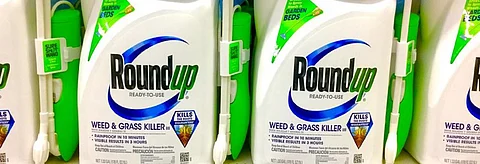

On May 13, 2019 a California court ordered Monsanto, now owned by Bayer, to pay more than $2 billion to a couple who are suffering from cancer after using the company’s flagship herbicide called Roundup.
This is the third time in the last 10 months that Monsanto has been found guilty of manufacturing cancer-causing products, especially Roundup. This is also the highest amount in damages that the company has been asked to settle.
The main contention of the jury was that Monsanto had failed to inform its customers about the dangers of the herbicides. The amount for the settlement was argued by the petitioner’s lawyer, R Brent Wisner, based on the annual profit made by Roundup — $892 million in 2017.
Alva and Alberta Pilliod used Roundup on their property in California for decades. They were diagnosed with non-Hodgkin’s lymphoma, a type of blood cancer in 2011 and 2015 respectively.
Two months ago a federal court in San Francisco had awarded a settlement of $80 million to a man who had claimed that Roundup had caused non Hodgkin’s lymphoma in him.
In August 2018, another California jury had asked Monsanto to pay compensatory damages worth $39 million and extra punitive damages worth $250 million to Dewayne Johnson. Later this amount was reduced to $78 million, which is now being appealed in court again. In 2016, Johnson, who is a groundskeeper, had filed a lawsuit against the company saying that using its brands of herbicides, including Roundup and Ranger Pro, caused non Hodgkin’s lymphoma in him.
Glyphosate, which is the main chemical used to make these herbicides, was declared as “probably carcinogenic to humans” by the International Agency for Research on Cancer (IARC), associated with the World Health Organization (WHO), in 2015.
“This was based on ‘limited’ evidence of cancer in humans (from real-world exposures that actually occurred) and ‘sufficient’ evidence of cancer in experimental animals (from studies of ‘pure’ glyphosate),” states the IARC monograph on glyphosate.
The IARC paper also states that there was strong evidence for genotoxicity of glyphosate — which means that it had the ability to alter the genetic material of cells.
Such an alteration of genetic material can affect an organism in three ways. The first impact is that it can be a carcinogen and cause cancer. Secondly, it can cause mutations in the cell’s DNA which can cause a number of genetic disorders. It can also cause birth defects in children.